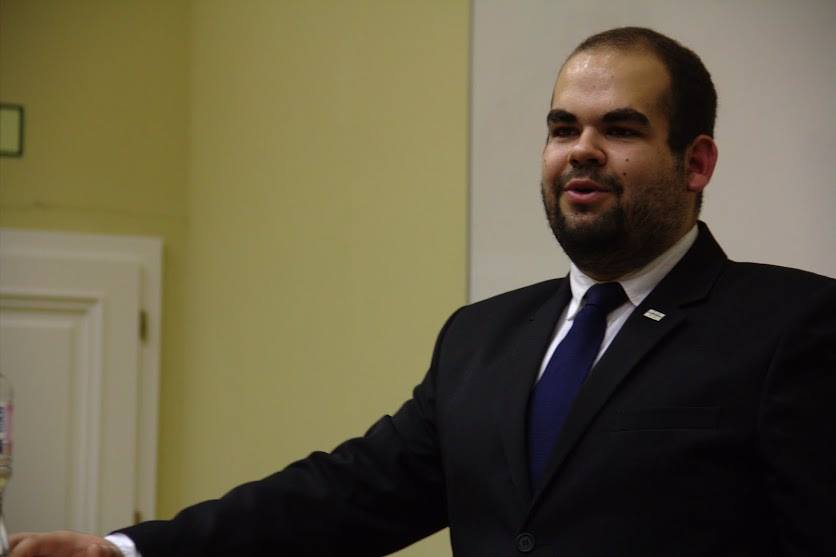Mentoring foreign students: next year of the Stipendium Hungaricum Mentor Network
After the first, pilot year, the mentor network prepares for its next year. What is the future direction in mentoring and what changes can we expect? We talked with Tamás Kaizinger, the executive of Stipendium Hungaricum Mentor Network.
DNH: The success of the program can be easily measured by the number of students who apply to take part in it. How many students do you expect to come to Hungary this year?
Kaizinger: It is very hard to tell now: we know how many students have applied to take part in higher education somewhere in Hungary, this number is around 28 000 people. From this amount, the Hungarian government secures matriculation for 5 600 people. Those are the ones, who can come to a Hungarian higher educational institution. Besides, students are very wise and apply to different scholarships, meaning that the number of students that will surely start their education in Hungary is around 3 300.
DNH: What can you offer in terms of mentoring for those who come here?
Kaizinger: Getting accepted by the Stipendium Hungaricum (SH) scholarship has lots of advantages: the students don’t have to pay e. g. for their tuition fees, for housing, moreover, they even receive health insurance. This is completed by the SH scholarship itself.
To each newcomer we appoint a mentor who helps the foreign student’s integration to the Hungarian higher educational system. This can mean administration, guidance, or anything that effects a foreign student’s life and education. With this work we try to give back the feeling of safety to each student.

DNH: What difficulties are there for students coming from abroad?
Kaizinger:
Students coming here are mostly between 18 and 20 years. Some of them even fly here from thousands or ten thousands of kilometres far, to a different social, economic and religious cultural space. There is a lot of psychological stress: stress about grades at university, homesickness or even financial problems. These difficulties also effect the Hungarian students, but for foreign students this phenomenon is present multiple times – just think about the fact that flying home to China isn’t necessarily simple or cheap.
DNH: How can mentoring help to overcome such problems?
Kaizinger: After the mentor and the foreign student got in touch with each other, we organize trainings in September and October where students can acquire skills on different learning methodologies, financial and time management tips and cultural differences. The attendance of students is completely free-will at these events. Needless to say, the strong relationship between the mentor and his/her student may include daily conversations about what to do or how to deal with the upcoming problems.
DNH: Besides mentoring, there are many programs for the foreign students…
Kaizinger:
Yes, after the trainings we also organize touristic and cultural programs for them. Every foreign student shall visit her/his ambassador in Budapest. We collect students coming from one country and guide them to the chancellery of that country where students can have a talk, a dinner or just a salon with the ambassador.
With cultural and touristic programs our aim is to let students get in touch with Hungary and the Hungarian culture. We take them to many cities, to museums, national parks and with professional tour guides we try to introduce the many faces of Hungary.
DNH: How do you see, is there anything you can or should change?
Kaizinger: Yes, we plan a new event called SH-factor, where foreign students can sign up with a production they would perform. During the schoolyear, there would be rehearsals, qualifyers, and at the end a final in Budapest.
We also want to organize a small football cup. In the teams both Hungarian and foreign students could take part in order to aid the international integration between students in Hungary and help Hungarian students get in touch with foreign people.
Last year we had a gala, that closed the first year of the programme. We gave the awards to the best ‘mentor of the year’ and the ‘leading mentor of the year’. After that the students had the opportunity to have a great closing-party. We would like to follow this ‘tradition’ this year as well.
DNH: Would you change anything in the mentoring system?
Kaizinger:
Yes, we are working on a new methodology. In the new program there would be a mentor-pair, a Hungarian and a foreign student, and they would help a group of students coming from abroad. The main advantage is that the foreign mentor has similar experiences as hi/her mentees: I mean coming from abroad and trying to live and study in Hungary. The Hungarian mentor can help with administration and introducing the institution; and the pair would be present as ‘Hungarian parents’ in this mentoring-family.
DNH: Are there any students who apply for mentoring and later will be mentors themselves?
Kaizinger: Yes, there is a common psychological idea that they get very much from Hungary and from people; they are really grateful and do their best to give back something. They also meet foreign mentors and see that this is a possibility to go and help the coming students and other mentors as well.
University of Szeged – Increasing number of international students







